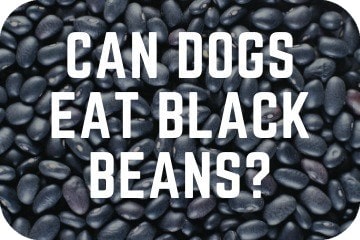
Can dogs eat black beans? Yes! Black beans are a super source of vitamins C & K, manganese, protein, iron, and dietary fiber. Just like all human foods, some beans are safe for dogs to eat as others pose a potential threat. Black beans are an excellent addition to a dogs’ diet, whether you’re using them as treats or adding them to their dinner. Black beans, pinto beans, and kidney beans provide dogs with high levels of plant-based protein, which is essential for muscle strength and growth.
Busy? Get Your Hands Paws On The Answers Quickly…
- Are Dogs Allowed Black Beans?
- What are the health benefits of black beans?
- What are the health concerns of black beans?
- What beans can dogs eat?
- What beans can dogs not eat?
- FAQs
Yes. Dogs are allowed black beans, among other varieties of beans. Beans provide dogs with an excellent source of nutrients and help them to maintain a healthy diet. Whether they’re used as treats, ingredients in treat recipes, or added to their meals, black beans are a super tasty legume. Below we have outlined the black bean nutrients and their benefits.
WHAT ARE THE HEALTH BENEFITS OF BLACK BEANS?
Vitamin C
This vitamin is of high importance. The antioxidants help reduce inflammation inside the dogs’ body as well as helping with cognitive aging. Dogs’ can produce vitamin C in their liver, but that does not mean you should factor it out of their diet as it offers other health benefits. Foods high in vitamin C include; broccoli, sprouts, lychees, and lemons.
Vitamin K
Research suggests Vitamin K plays a vital role in ensuring your dog’s blood clots when necessary.
Potassium
High levels of potassium can be provided from black beans. Potassium is an excellent nutrient for your dogs as it helps to control their nerve impulses, functions the brain, muscle activity, and function of the heart. If your dogs’ potassium levels become too low, it can cause hypokalemia. Hypokalemia can affect some dogs a lot, while others won’t show any symptoms. The lack of potassium can affect a dog’s neurological, skeletal, and cardiac muscles, and if left untreated, it could be fatal.
Magnesium
Magnesium is another vital mineral for dogs. Magnesium helps the dog’s body to process as well as functioning the nerve system and muscle mobilization. If you notice a change in your dogs’ muscle strength or tone, this could be down to a lack of magnesium. Foods that have high levels of magnesium include; tofu, whole grains, fish, and nuts.
Fiber
Fiber isn’t a necessity in a dog’s diet and isn’t something ‘wild’ dogs would have eaten. However, it can help with the gut, digestive system, and to keep consistent bowel movements.
WHAT ARE THE HEALTH CONCERNS OF BLACK BEANS?

As with most human foods, as well as having many benefits, there are always some concerns. Thankfully with black beans, there is not too much to worry about apart from a few obvious potential threats. Have a look below!
Allergic Reaction
As with all foods, your dog may be allergic to black beans. When feeding the black beans for the first time, ensure it is of a small quantity and closely monitor their behavior shortly after. If your dog is displaying any of the symptoms (see below), contact your local veterinarian straight away to seek professional help and advice.
Symptoms of allergic reaction in dogs
> Vomiting
> Diarrhea
> Loss of appetite
> Becomes lethargic
> Moves to a quiet place
> Pacing
WHAT BEANS CAN DOGS EAT?
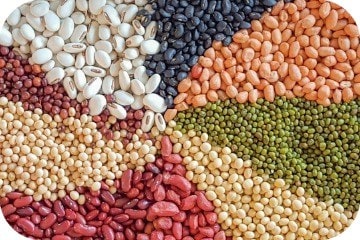
As with most human foods, as well as having many benefits, there are always some concerns. Thankfully with black beans, there is not too much to worry about apart from a few obvious potential threats. Have a look below!
Allergic Reaction
As with all foods, your dog may be allergic to black beans. When feeding the black beans for the first time, ensure it is of a small quantity and closely monitor their behavior shortly after. If your dog is displaying any of the symptoms (see below), contact your local veterinarian straight away to seek professional help and advice.
Symptoms of allergic reaction in dogs
> Vomiting
> Diarrhea
> Loss of appetite
> Becomes lethargic
> Moves to a quiet place
> Pacing
WHAT BEANS CAN DOGS EAT?
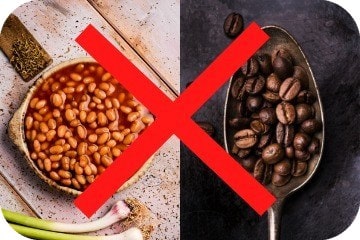
They’re a lot of beans that dogs can eat and a small list of some they can’t. Below we have outlined the beans that are harmful to dogs and the reasons why. |
Fava Beans
Also known as broad beans. This bean can cause diarrhea, vomiting, and abdominal pain in dogs.
Baked Beans
A delicious snack for us humans but not so much for dogs. Baked beans tend to contain high levels of sugar as well as onions and garlic, which can be dangerous to dogs. Avoid at all times.
Refried Beans
Refried beans tend to include plenty of seasonings such as onion, garlic, and chilli powder, which will cause your dog to become unwell.
Chilli Beans
The name of the bean kind of gives it away. Chilli beans tend to have a spicy kick with added ingredients such as onion and garlic, which is not good for dogs.
Coffee Beans
Avoid at all costs! Can cause neurological damage to your dog, which, if left untreated, can even be fatal.
Raw Red Kidney Beans
Raw red kidney beans contain a toxin that is dangerous to dogs. If your dog has eaten a toxic food, it can cause irritation and inflammation inside the stomach, which eventually prevents it from ‘working properly’.
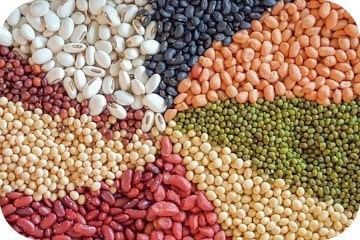
Why do dogs eat grass?
There is no scientific study to conclude precisely why dogs like eating grass. However, there are several theories and experiences to show why dogs may be chomping down on the green stuff. These include; boredom, nutrient deficiency, unwell or nauseous, the taste is too good to resist, or it’s naturally in their DNA.
Can dogs eat watermelon?
Yes! It can be a healthy, hydrating, and refreshing snack for all dog breeds. There are many ways to feed this delicious treat to your dogs, from fresh, freezing, to dehydrating. However, it should be given as a treat in moderation.
Can dogs eat broccoli?
Yes. Dogs can eat cooked broccoli, but raw broccoli isn’t recommended. However, owners must remember to limit portion sizes as too much broccoli can cause stomach problems. Broccoli is full of fiber and vitamin C. Therefore, it is full of nutrients and the perfect snack for your dogs.
Is peanut butter ok for dogs?
In short, yes, they can. However, some peanut butter contains xylitol, which is toxic to dogs. Therefore when purchasing peanut butter for your dog, you should check the labels and ensure your product is xylitol free. Peanut butter works as a great treat and can also go inside a kong, which is a fun, enjoyable, and stimulating game.
Looking for more pawsome posts? Check these out…
Can Dogs Eat Rhubarb?
How To Make A Snuffle Mat
When Do Puppies Lose Their Teeth?
Can Dogs Eat Hummus?
Can Dogs Eat Almond Butter?
Disclaimer: Each dog is different, and every circumstance is different. All efforts have been made to provide accurate information. However, it is not provided by a qualified Veterinarian, Veterinarian Surgeon, or Behaviorist. The information provided is purely educational. The information should not be used as an alternative or substitute for medical care. If you have any health or medical concerns, contact a qualified Veterinary Surgeon or Veterinarian immediately.
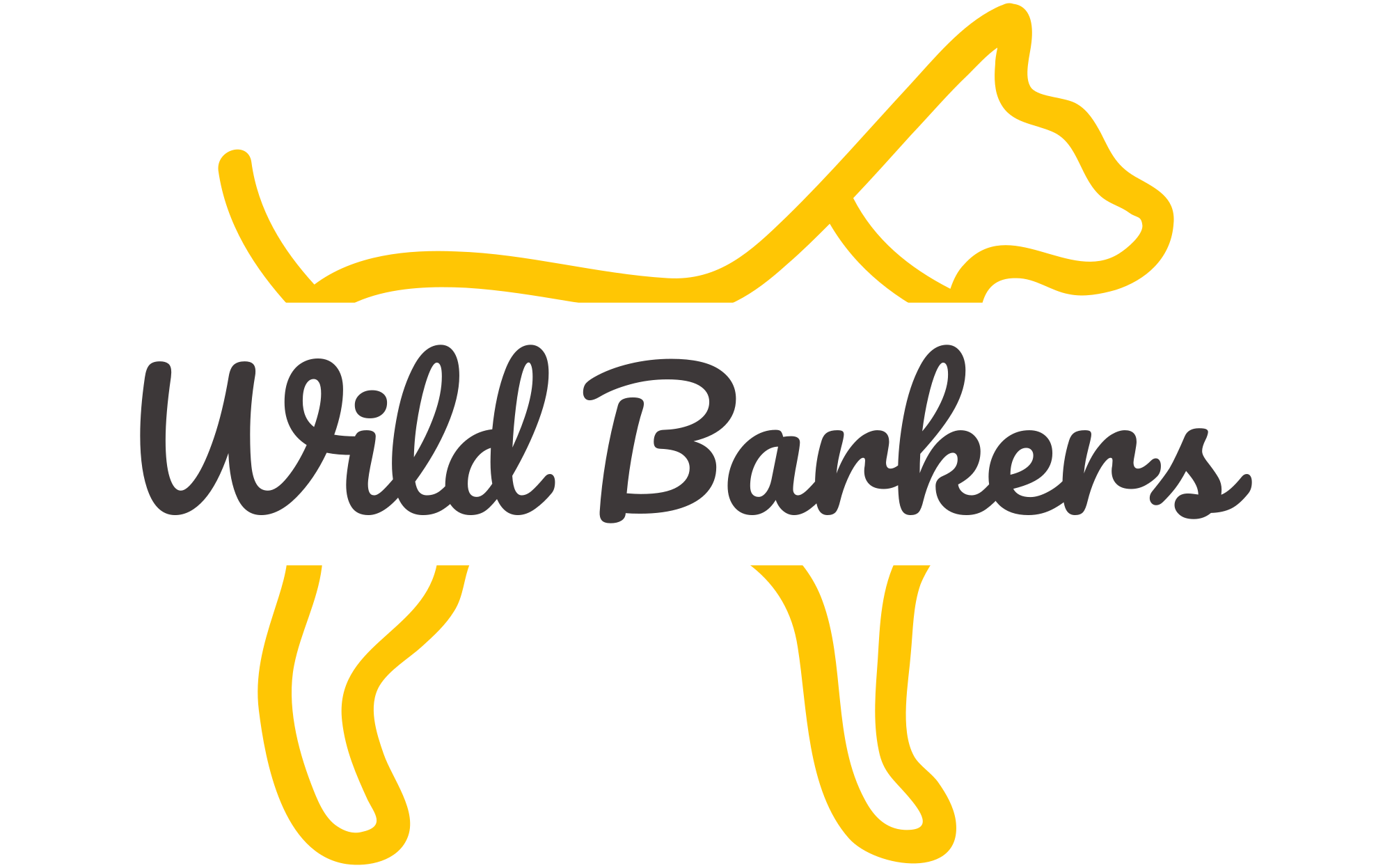




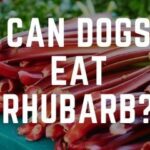
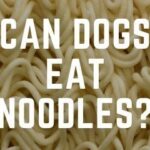
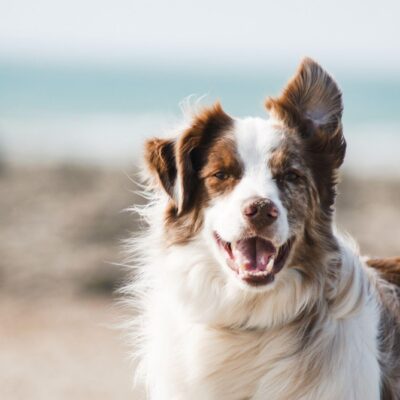
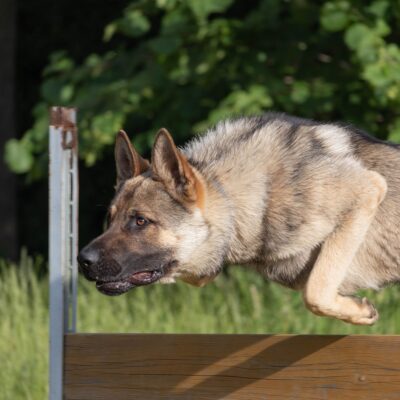
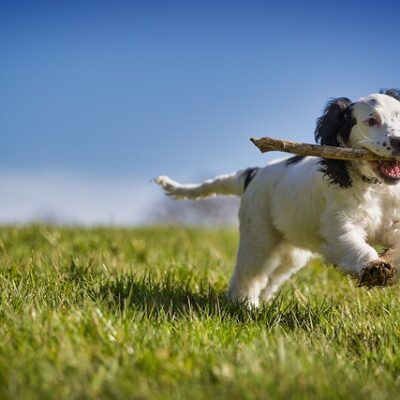
No Comment! Be the first one.